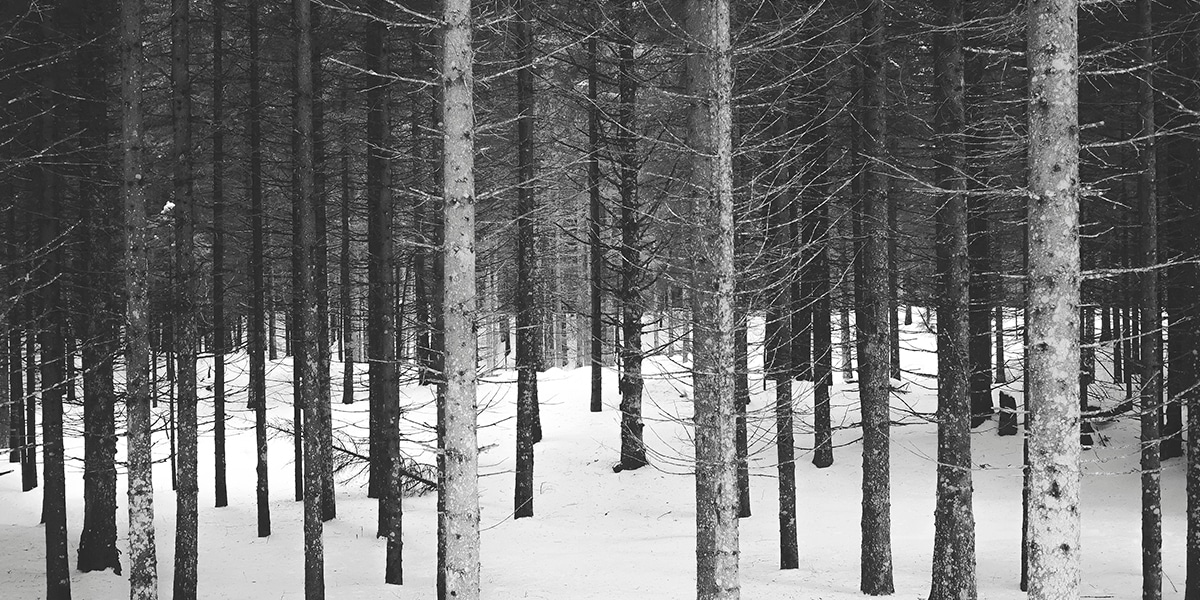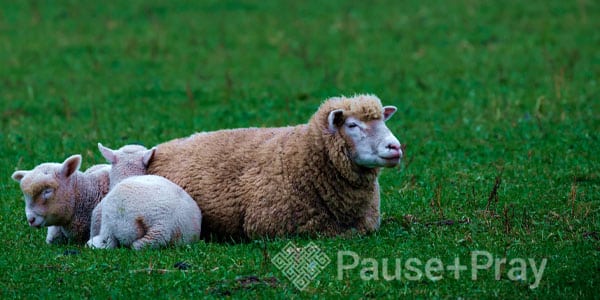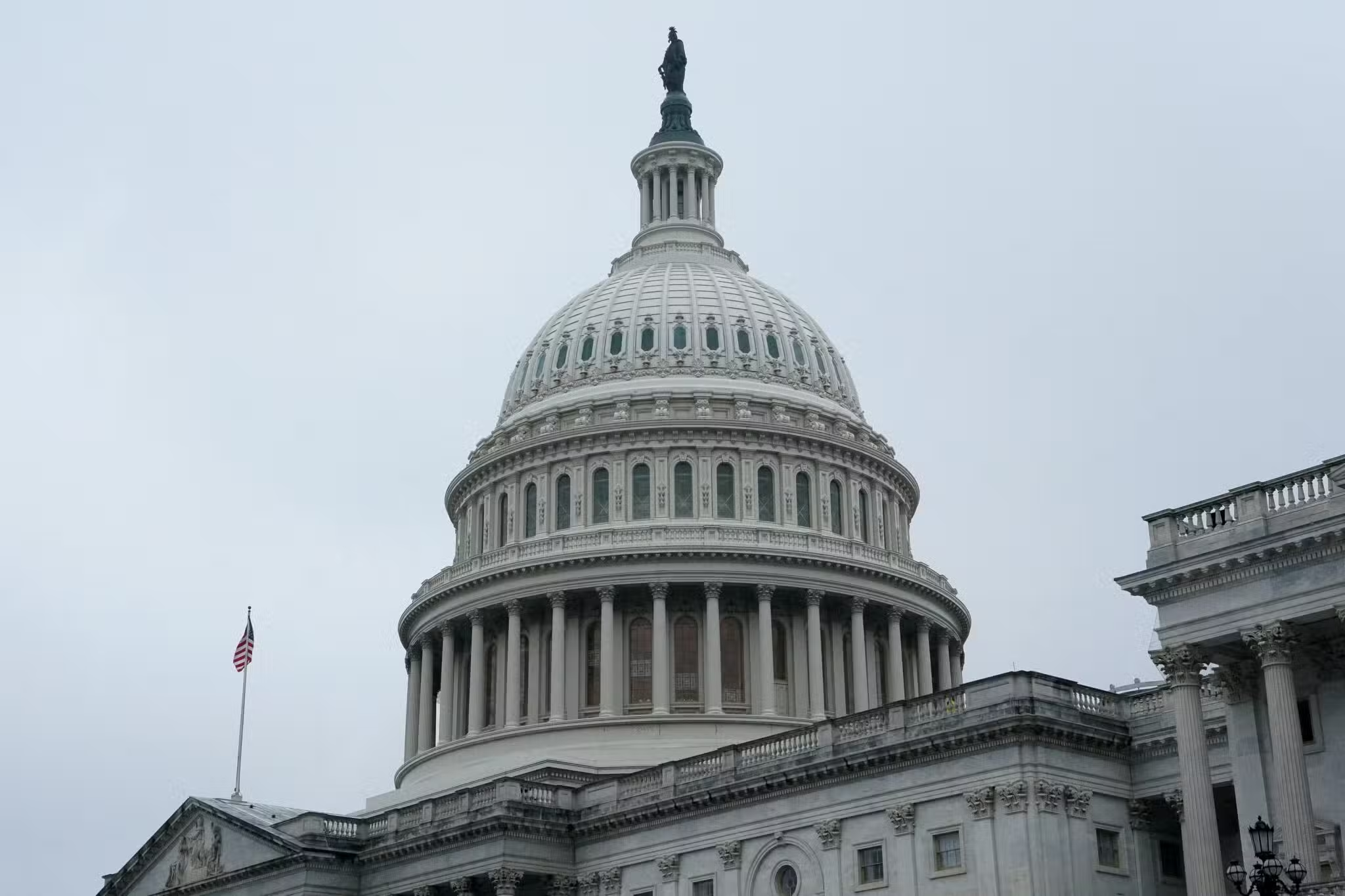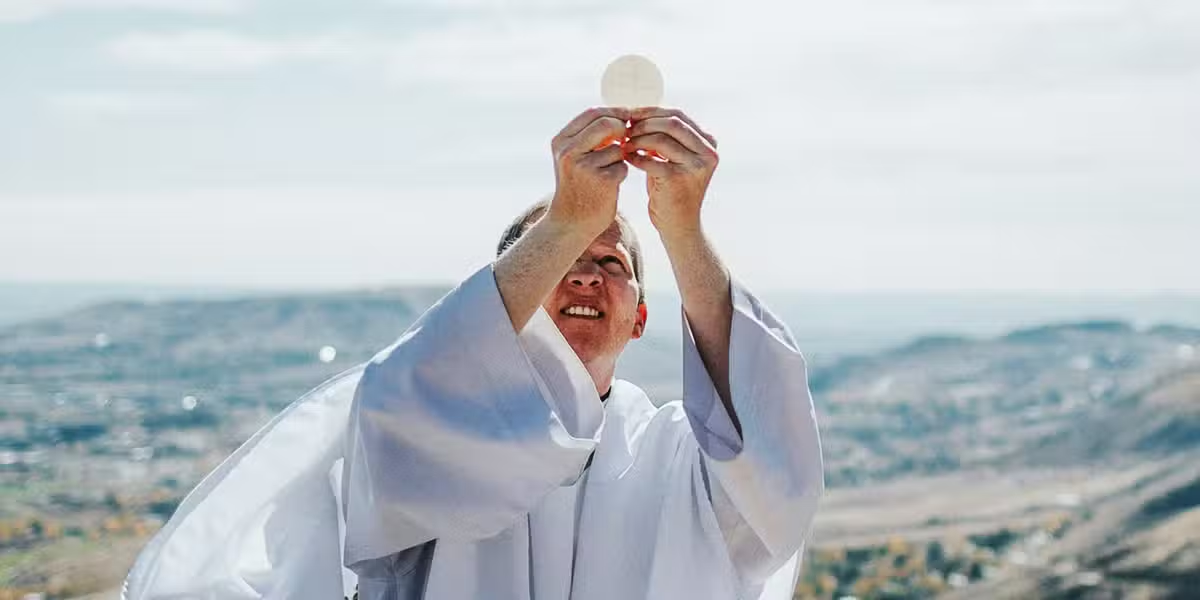It matters what vision of the world you have; it matters where you place your hope. The Advent season gives us a bright and beautiful North Star: an angel-announced promise of God’s love to be made incarnate in Jesus. His birth heralds a Magnificat world where power dynamics will be turned upside down and where love and justice come to their full flowering.
Advent doesn’t only offer the promise of Jesus’ coming and of a world renewed. This season also gives us several weeks to practice how we might live toward that vision. Throughout history, we have always been tempted to bring about the world we want on our own terms and our own timetable—but that is the way of bloody revolution and repression. On the other end of the spectrum, it’s foolish to think that we don’t have to put forth any effort, that God will do everything for us. God made us to be active cocreators, not lazy bystanders. Advent invites us into active, attentive preparation rather than forceful, impatient goal-seeking or passive, wishful thinking.
The wonderful adventure of running an interfaith spirituality center, as I do, is that I often encounter insights from other traditions that help me understand my own Catholic tradition better. I recently encountered a wise saying from the Chinese philosopher Lao Tzu, which I think captures perfectly the wisdom of Advent waiting: “Nature does not hurry, yet everything is accomplished.”
The Power of Waiting
This saying comes out of the Taoist idea of wu-wei, variously translated as “non-striving,” “non-forcing,” and “right action.” Like Advent, the wu-wei philosophy counsels us to wait actively but without forcing our vision on the world. Farmers can’t make the seed grow, but they don’t sit by and do nothing in the meantime: They tend the soil, guard against pests and predators, and ensure the seed has everything it needs to thrive. Like all pregnant women, Mary would need to wait nine full months for the baby Jesus to be knit together in her womb. But that entire time, along with her fellow miracle-bearer, Elizabeth, she readied herself for his coming.
Waiting in this way helps you pay careful, patient attention to your surroundings—especially to the rhythms and cycles of the natural world—so that when you do take action, you generally need less effort and no coercion, like trimming a boat’s sails properly to catch the wind. You work with the grain of reality, not against it, since going against the grain of things almost always requires violence of some kind or another—or at the very least, a lot more work.
This may sound easy, but in practice, it’s a fine art to discern what is the right action at the right time. There is no easy, hard-and-fast rule book or recipe for this, and yet it is essential for being a good parent, spouse, friend, coworker, or citizen. In fact, I would say that this patient, non-grasping attentiveness is both a fruit and a form of prayer.
Like prayer, I believe wu-wei and the Advent season both come down to a fundamental question of trust. Are we just fooling ourselves into thinking a better world is possible, or does this vision come from a source that we can rely upon? If we believe that we are alone in a cold, indifferent, or threatening universe, then it’s tempting to think that we have to chisel out our future on the strength of our own willpower or else just collapse into despair because, after all, aren’t we just deluding ourselves? If, on the other hand, you believe that divine love is actively at work in the world, you’ll feel the wind at your back.
Trusting in the goodness of Providence is hard for us mere mortals. I imagine that’s why creation is hard-wired with such an amazing drive toward healing and thriving; it’s hard to spend any significant time in nature and not have some sort of profound spiritual experience. And just to make sure we got the message, God sent a baby, born in Bethlehem so many years ago, to show us the way.
Those who hoped Jesus might force large-scale social change were bitterly disappointed. His way was radically different: more mustard seeds and patient, trusting wu-wei than violent revolution. That message isn’t any easier for us to hear now than it was 2,000 years ago. But given the alternatives, I still think a little Advent wu-wei would do wonders for our world.
Tips: Go with the Flow
1) Think of all the essential pivot points of your life: meeting your beloved, choosing a career path, or taking a road less traveled. To what extent did you plan and calculate these events? To what extent did Providence put them in front of you?
2) Like Lent, Advent is a perfect season for the Sacrament of Reconciliation. Were there any times when you harmed a relationship by pushing too hard to get your way?
3) With what sorts of things are you struggling right now? What if you decided, in the words of Baron Baptiste, to stop trying so hard, but rather to “try easy”?








